Voices Ringing
Carroll High School Blog
Connecting Catholic Social Teaching to Liteature

“Literature adds to reality, it does not simply describe it. It enriches the necessary competencies that daily life requires and provides…” --C.S. Lewis
The Carroll High School English Department firmly believes that the study of literature is the study of the human experience. We are fortunate to be able to discuss life’s big questions through the use of literature and the application of Catholic Social Teachings. Our students learn that their experiences, challenges, and triumphs, while unique to them, also resonate with people throughout history. We get to ask the tough questions that we all face, but we get to start with a character from a book. These discussions are easy when talking about a character that we will never personally meet, but they also allow us to look within ourselves and determine how we would want to react when faced with the same challenge.
Literature adds to reality, it does not simply describe it. It enriches the necessary competencies that daily life requires and provides
-C.S. Lewis
Would we still go to school if by going we would risk our lives like Malala? Do we have the strength to write about the injustice of slavery like Harriet Beecher Stowe? Would we too lose all sense of civility if we were stranded on an island like Jack and Ralph? Do we have the compassion and love of Hans to quietly wash the sheets so a scared and displaced child learns the meaning of family? Are we able to believe that love can truly transcend barriers like Natasha? Can we discern true intentions when we meet a Mrs. Danvers? Are we able to relate to the memoirs of Tara and Trevor to examine our own path and simply do better? Does Okonkwo show us that the fear of failure can actually destroy us from the inside out? Are we as knowledgeable about our heritage and family history as Esperanza? Are we able to recognize the small ways that Mariam tries to maintain independence?
These are just some of the questions from the summer reading curriculum. Students are challenged to see the world outside their personal experience through the safety of literature. These questions build throughout the four years at Carroll and, hopefully, beyond. When we delve into a story of places and people that are not in our personal space, we can think and grow beyond what we currently know. We can ask the questions necessary to cause discussion and action in order to make this world better. Literature is both powerful and thought-provoking. To end the starting quote, ”it irrigates the deserts” that exist in each of us.
Eight must-read poems from the Carroll High School English Faculty
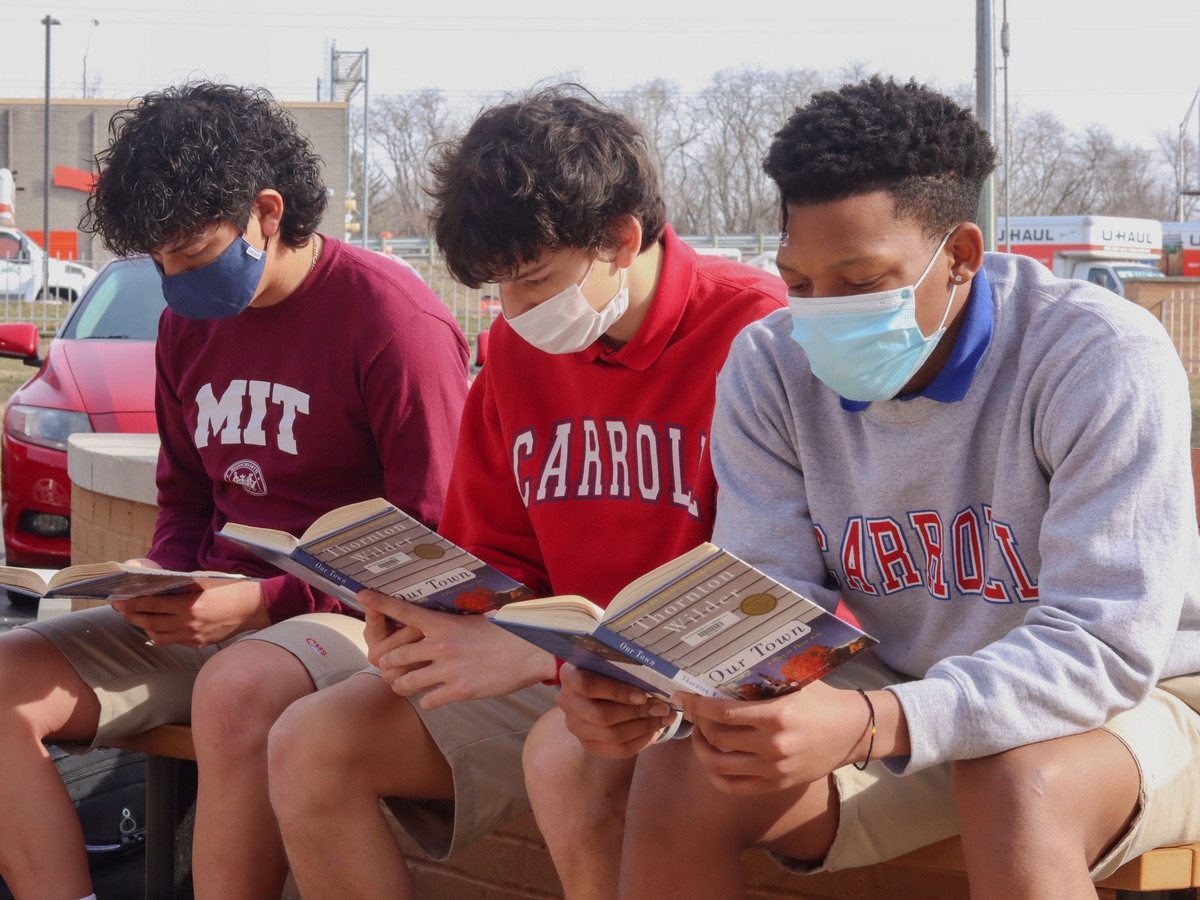
Whenever Poetry is brought up in an English class, there will inevitably be a series of groans. The perception of poetry is often that it is sappy, stuffy, or just impossible to understand. This genre can be rigid, symmetrical, controlled, and formal. However, it also can be uninhibited and written in a way that makes you wonder if the poet follows any rules (E.E. Cummings is a prime example). For most of us, our exposure to poetry are the poems we were given to read for an assignment or the writings of a Hallmark card. This is probably why each year when the Poetry Unit appears, it is accompanied by groans.
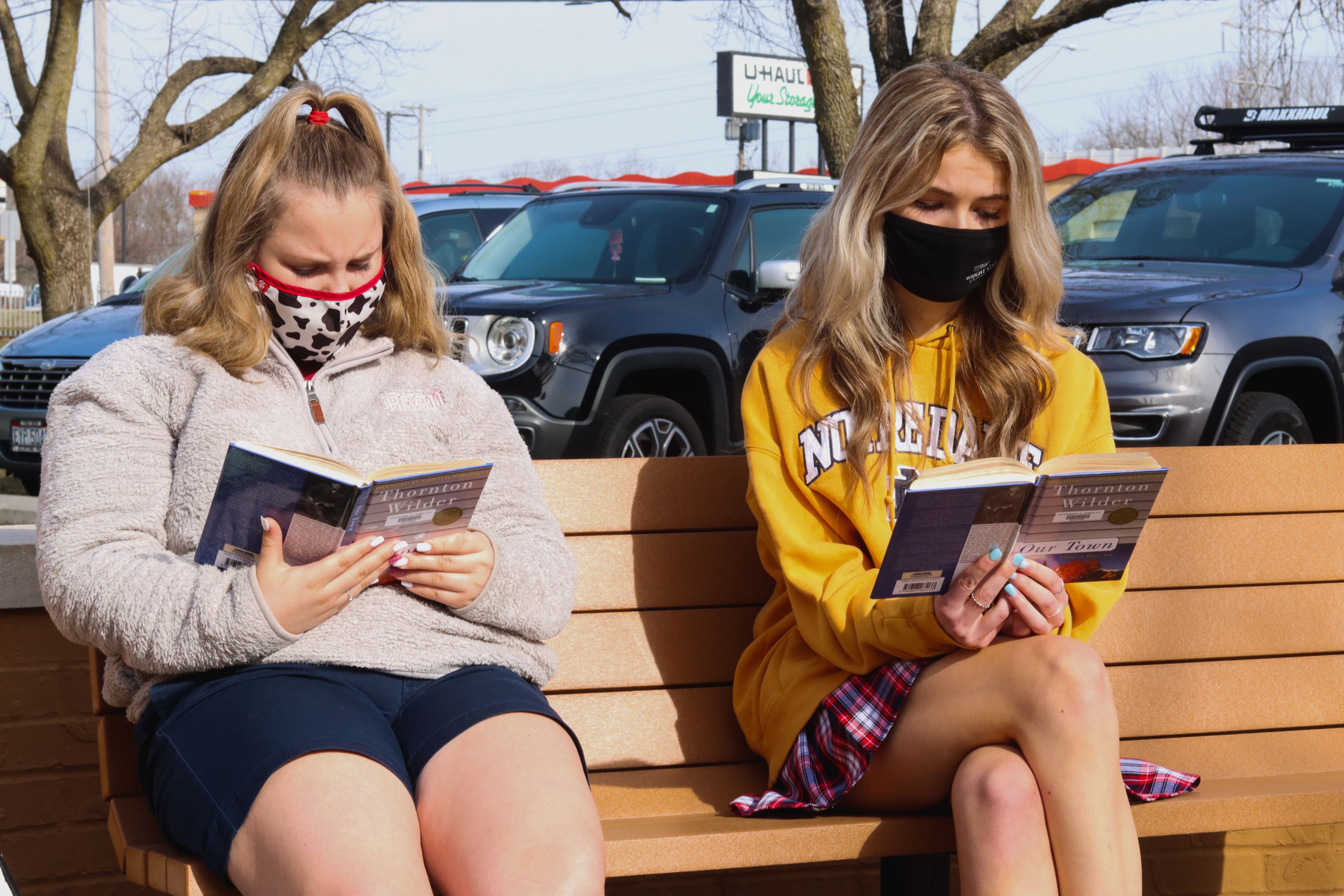
Our department’s goal is to help students realize the breadth and depth of poetry. My poetry class professor would start every class with a simple phrase: "I hope that today someone finds the voice she needed to hear.” That is what poetry is. Ten people can read the exact same poem and take away ten different meanings. Poetry allows us a glimpse into someone’s thoughts, heart, and soul like no other genre does. When we read a poem that embodies the very thoughts we find that we ourselves cannot articulate, it becomes an anthem. Sometimes it even allows us to be brave enough to try our hand at it. Luckily, we offer our students the chance to experiment with their own poetic voices during class, and for those that wish to make these works more public, we have our Write On publication that takes submissions from all students and staff. I hope you all have a chance to explore poems that speak to you. Our department has a few favorites we would like to suggest:
Ms. Claire O’Malley: The Summer Day by Mary Oliver
Mrs. Ann (Calderone) Bertke '88: Birches by Robert Frost
Ms. Molly Stanifer: B also titled If I Should Have a Daughter by Sarah Kay
Mrs. Marcy (Hemmert) Hughes '83: Hope is the Thing With Feathers by Emily Dickinson
Courtney (Griffith) Thompson '16: Phenomenal Woman by Maya Angelou which is also a favorite of Marcy Hughes and Mary Kate Caserta
Mary Kate Caserta: Richard Cory by Edwin Arlington Robinson
Ben Joplin: To the True Romance by Rudyard Kipling
Ben Swick: Avocado by Chris Harris
The Elusive "10"
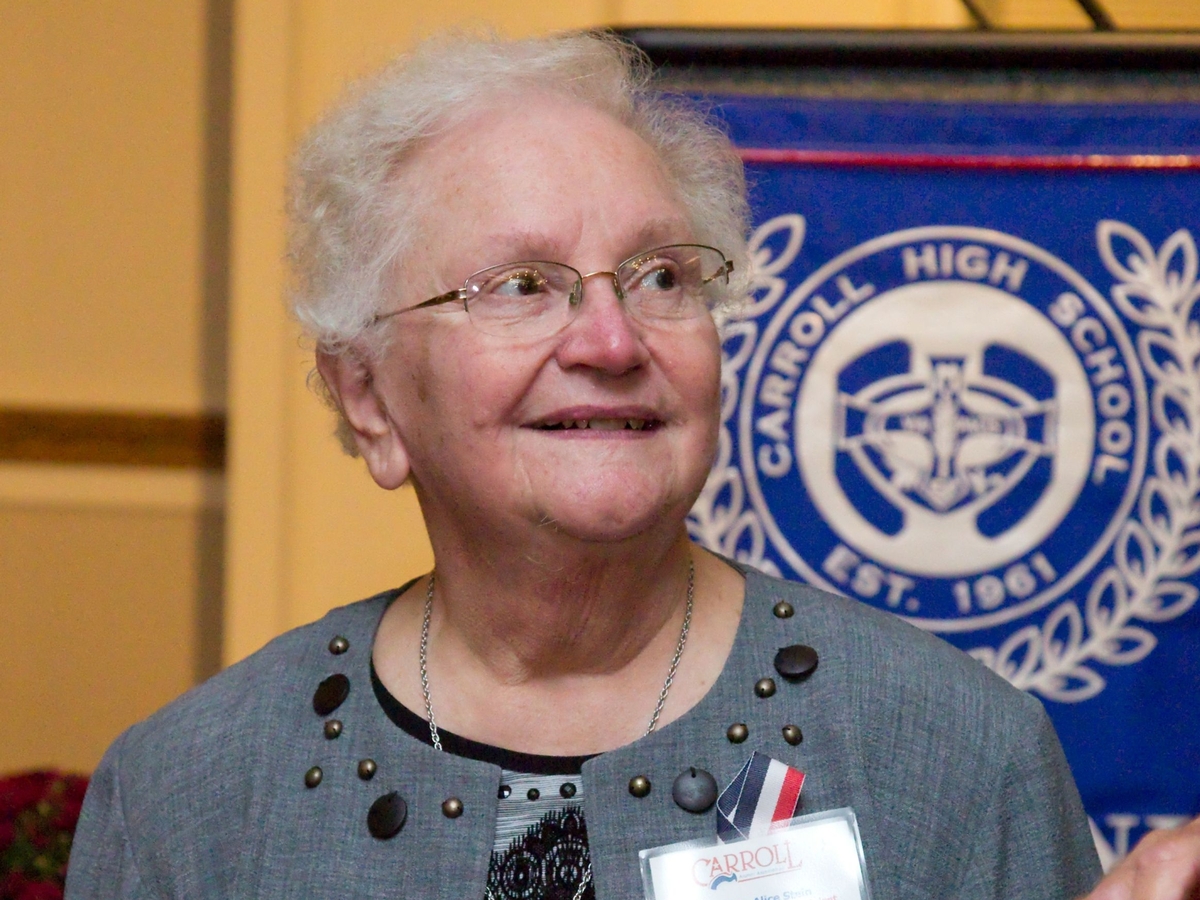
“Sister Mary Alice is short.”
While that sentence may be politically incorrect, it is concise, descriptive, and free of spelling and grammatical errors. And that sums up most of what I learned in Sister Mary Alice’s journalism class.
Sister Mary Alice Stein, known affectionately by her initials as “SMAS” (but never addressed by that name) provided my best training as a writer during my junior year in high school. All of our articles had to be typed on an 8x10 sheet of paper folded in half; we typed on one side; she then unfolded the paper and wrote her comments on the other side in red ink. She graded on a scale of 1 to 10, and she was proud that she’d given only one “10” in her entire career, always reminding us the young woman who received it became a reporter, justifying her perfect grade. I wanted to be the second person to score a perfect “10”.
My first attempts were met with a sea of red ink regarding style (lack of), grammar (incorrect), and a general absence of enthusiasm about the entire piece. I went to work dressing up my leads, inverting my pyramids, and rewriting things several times before submitting them.
Desperate to show progress, I once wrestled with a sentence to get my point across and ensure it was grammatically correct. When I was confident it met both goals, I submitted my piece. When she returned it, I had once again failed to get a “10”, and the sentence I struggled with was indeed correct but marked in red pen as “awkward.” My face turned red with embarrassment, matching the editing marks.
Sister Mary Alice was always kind and restrained when explaining her edits. She had a way of engaging students that was cordial and entertaining but left no doubt that she was in charge. I took her advice to heart, and over time, my writing and grades improved to the 9.0 level with an occasional 9.5 or higher. I was honored to be named one of the editors my senior year.
My first job after college had me reading memos and reviewing resumes, and misspelled words and mangled sentences ruled the day. Technological advances not only increased the garbled writing, it made messages longer. Word processors and email increased the length of messages, allowing writers to use more words to say less since there was no longer a piece of paper edging out of the typewriter to suggest it might be time to stop.
This unlimited length wasted a lot of time and money in deciphering the original sender’s meaning and intent, resulting in an electronic snowstorm of “reply all” messages. It spawned the acronym “BLUF”, (Bottom Line Up Front), but it failed to get writers to state a point early — or sometimes ever.
I was already placing the most critical information at the top, just as Sister Mary Alice taught me. It paid off handsomely.
I never did get the “10” I wanted. During my career, I have published a number of articles as a freelancer, have gotten paid for my writing, and have also been able to get donations, jobs, and compensation for complaints (mostly from airlines) from my ability to write well. That’s worth a lot more than a “10.”
Seven modern books with Catholic Social Teaching Themes
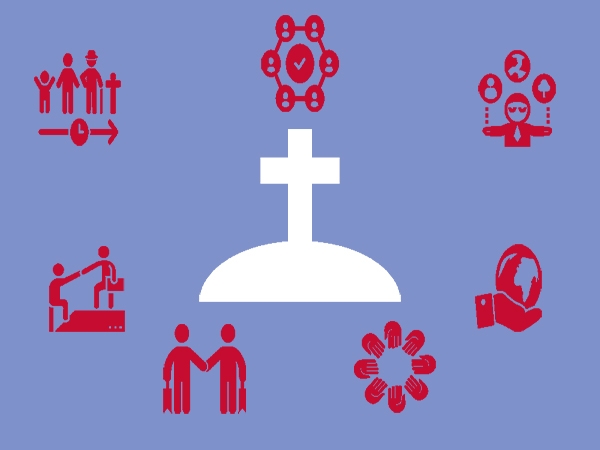
Carroll High School’s English Department is honored and privileged to be able to talk about literature under the scope of the seven principles of Catholic Social Teaching. Any work we read can be applied to one of the seven principles, if not more. We would like to take this opportunity to show the link between each principle and one of the works we read throughout a student’s four years at Carroll.
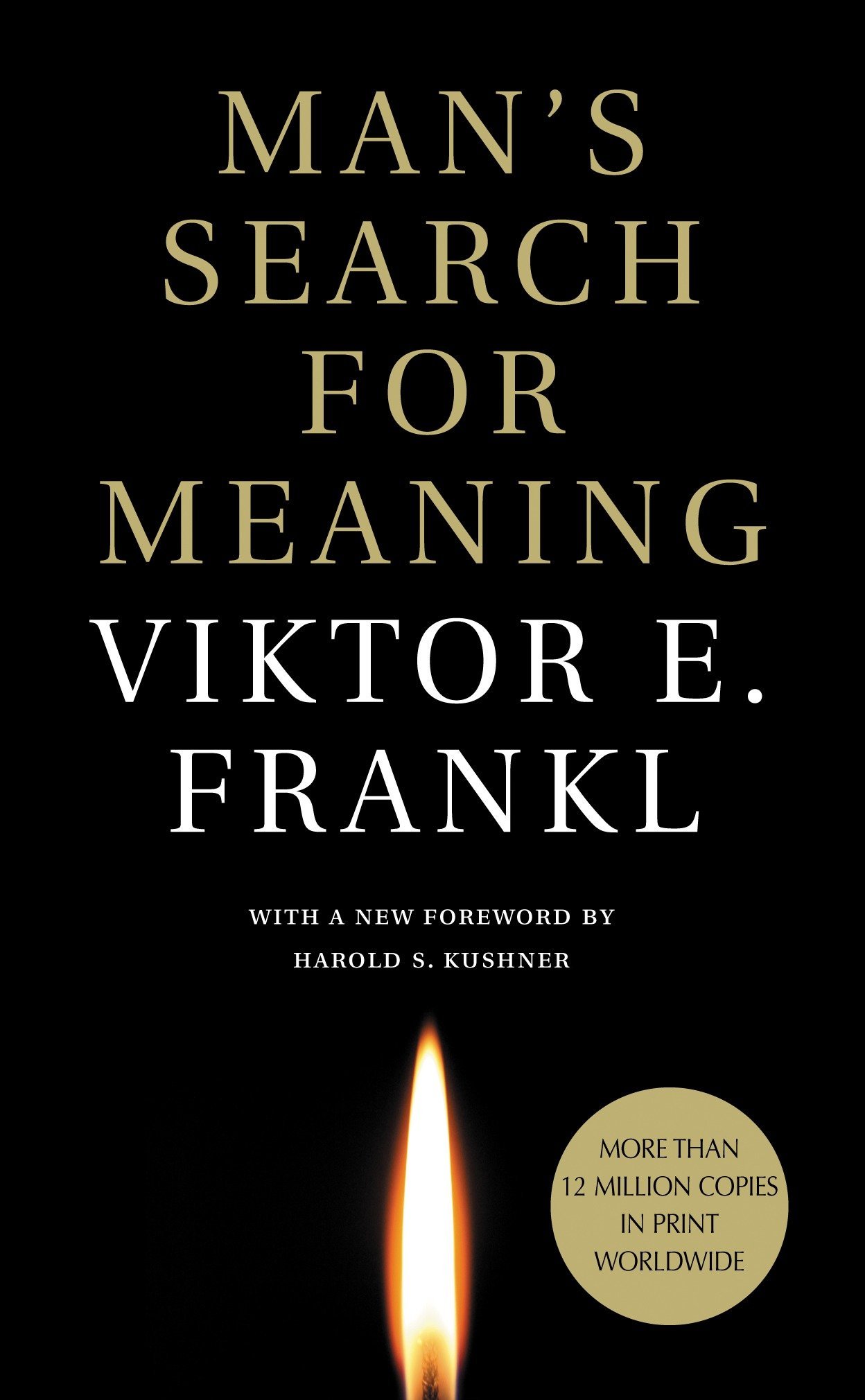
Life and Dignity of the Human Person
Many of our works greatly exemplify this principle, but our seniors would say Man’s Search for Meaning gives them insight on how we must hold onto this principle, even when the world around us shouts that it is unimportant.
Call to Family, Community, and Participation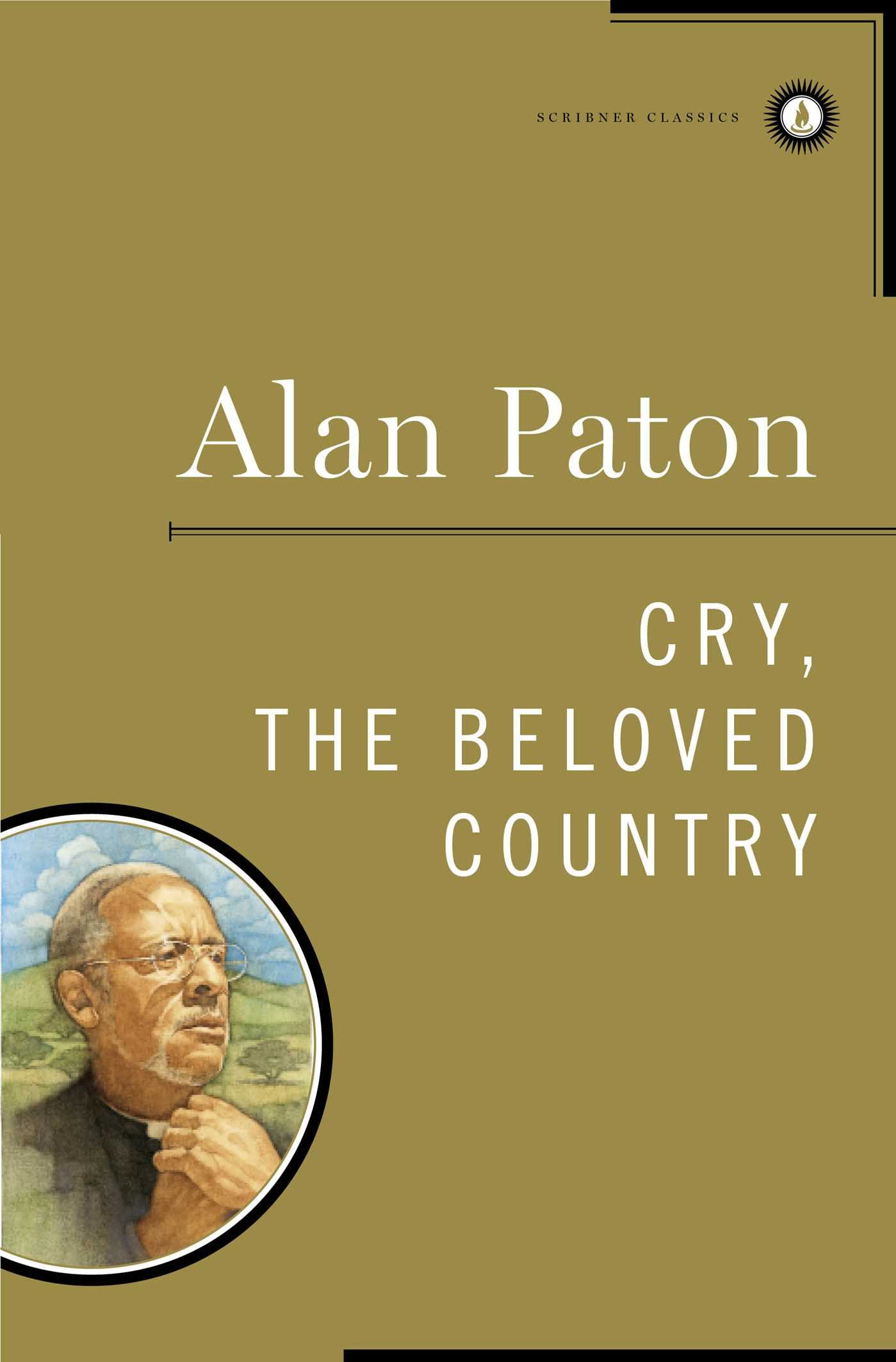
In Cry, The Beloved Country we see how we must build strong community foundations to bridge the differences between classes and ethnicities. Destroying the pillars of marriage, family, and community, while also widening the gap between the haves and have-nots, will cause distrust, hatred, and collapse. Only by working to strengthen these pillars for all can we achieve the world we wish to have.
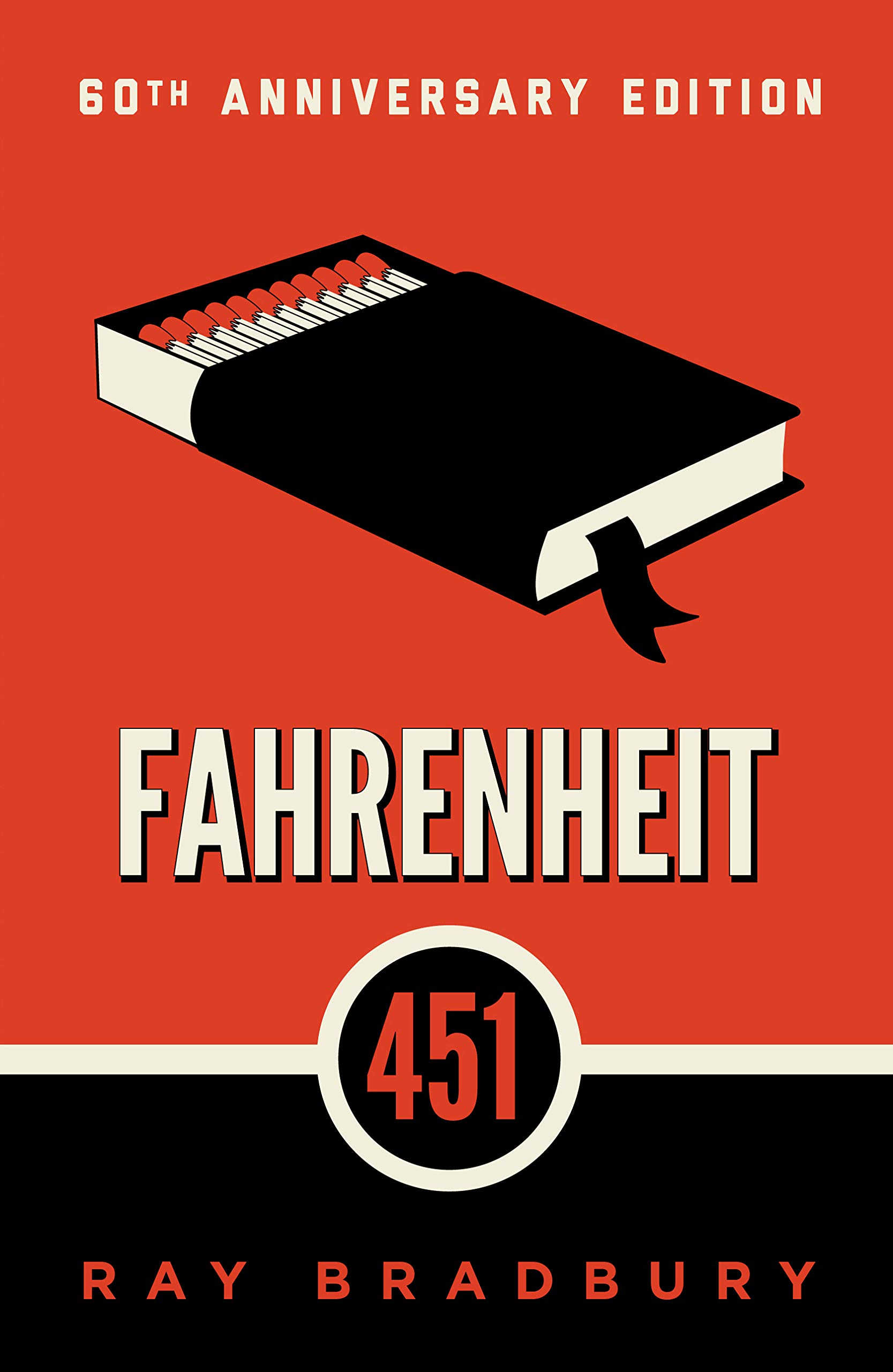 Rights and Responsibilities
Rights and Responsibilities
Fahrenheit 451 gives us a glimpse of what happens when people allow themselves to be stripped of the opportunity to think, feel, and fight for what is right. If we do not take up the responsibility of fighting for the dignity of life and care of the individual, our society will implode.
Option for the Poor and Vulnerable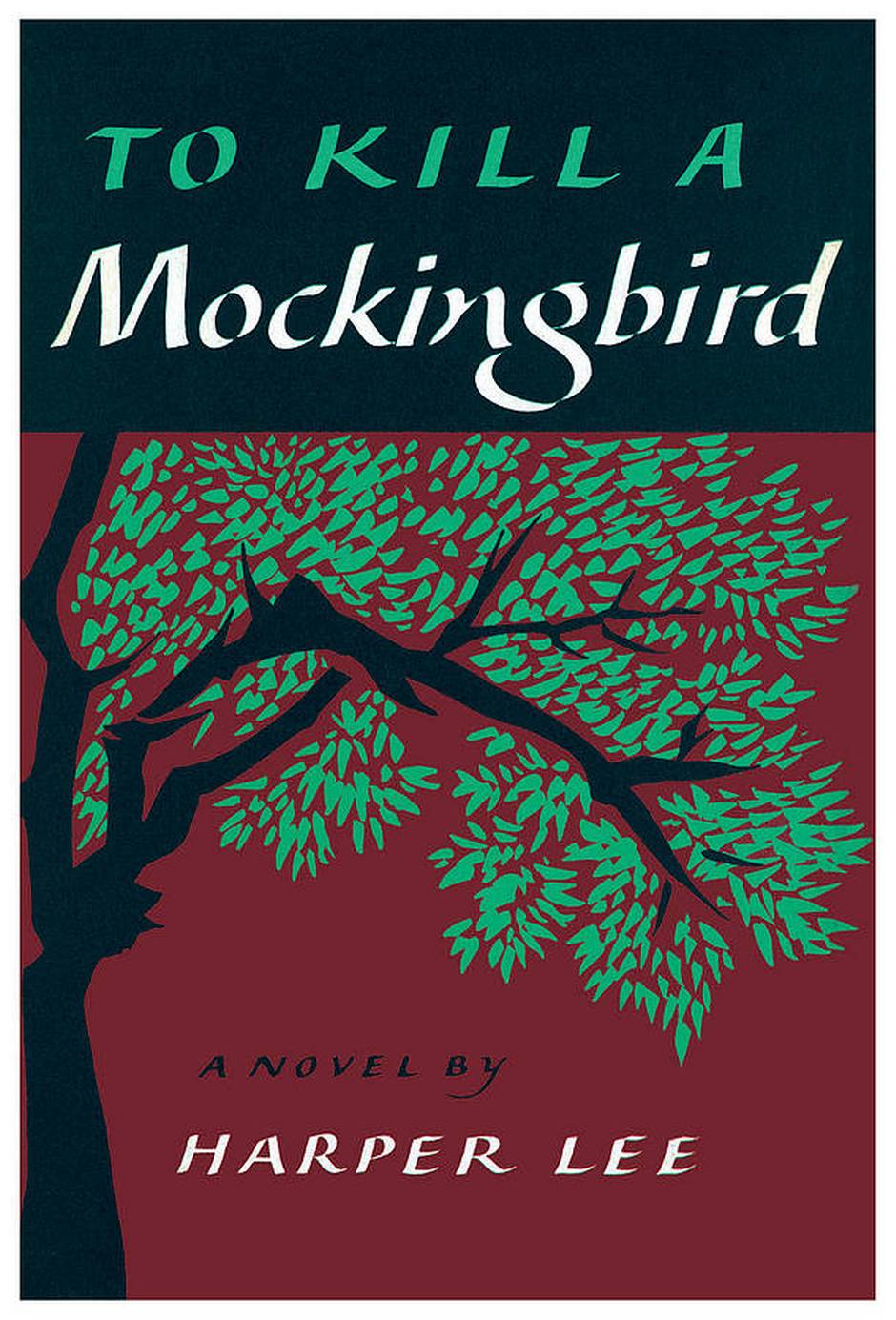
To Kill a Mockingbird is a work that can be applied to all seven principles easily. However, maybe the biggest takeaway is that all people deserve to be heard, treated, and cared for with respect and dignity. We can not stand by and watch injustice. We must take a stand and work to change the views of our community and world.
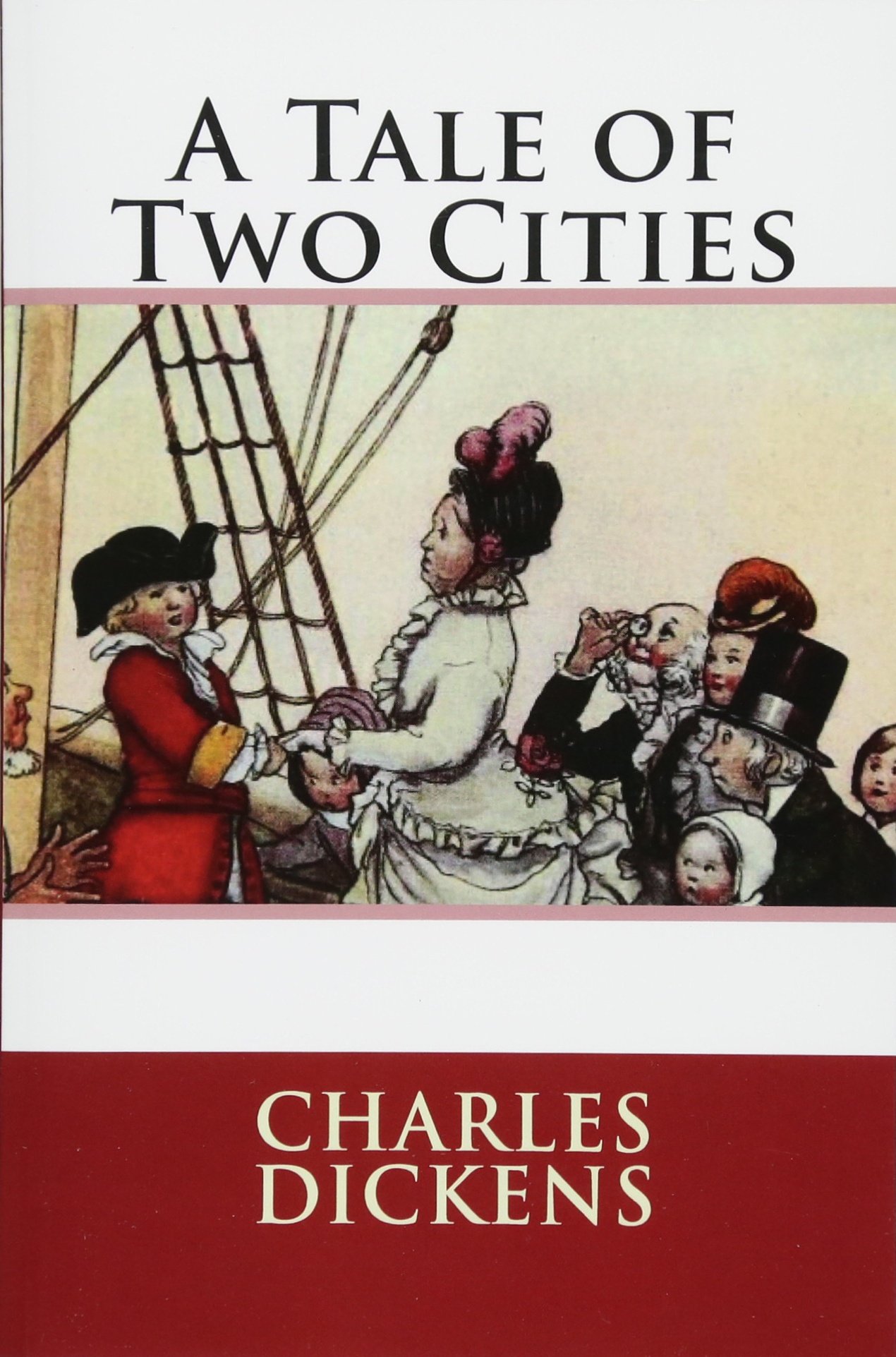 The Dignity of Work and the Rights of Workers
The Dignity of Work and the Rights of Workers
A Tale of Two Cities makes the reader examine how the workers are treated with respect to the employers. To put ourselves in the middle of the conflict between classes allows us to reflect on and answer the tough questions about the rights of all, not just the privileged.
Solidarity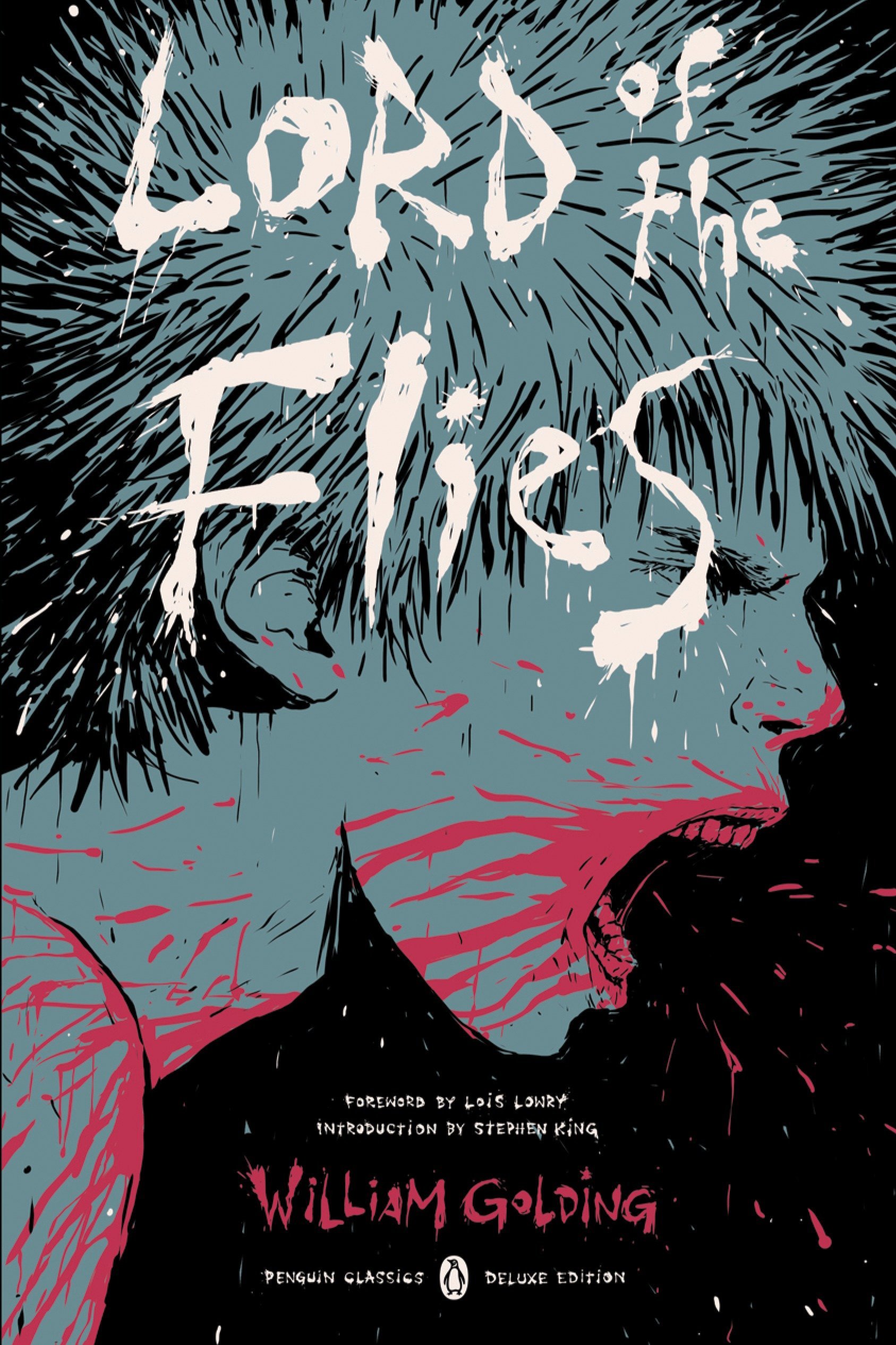
We must stand together for the greater good. We all have a responsibility to make policy that leaves this world better than we found it. Lord of the Flies demonstrates what happens when the structure of society is stripped away, and we must start from scratch. The outcome is our choice, but it is not an easy path.
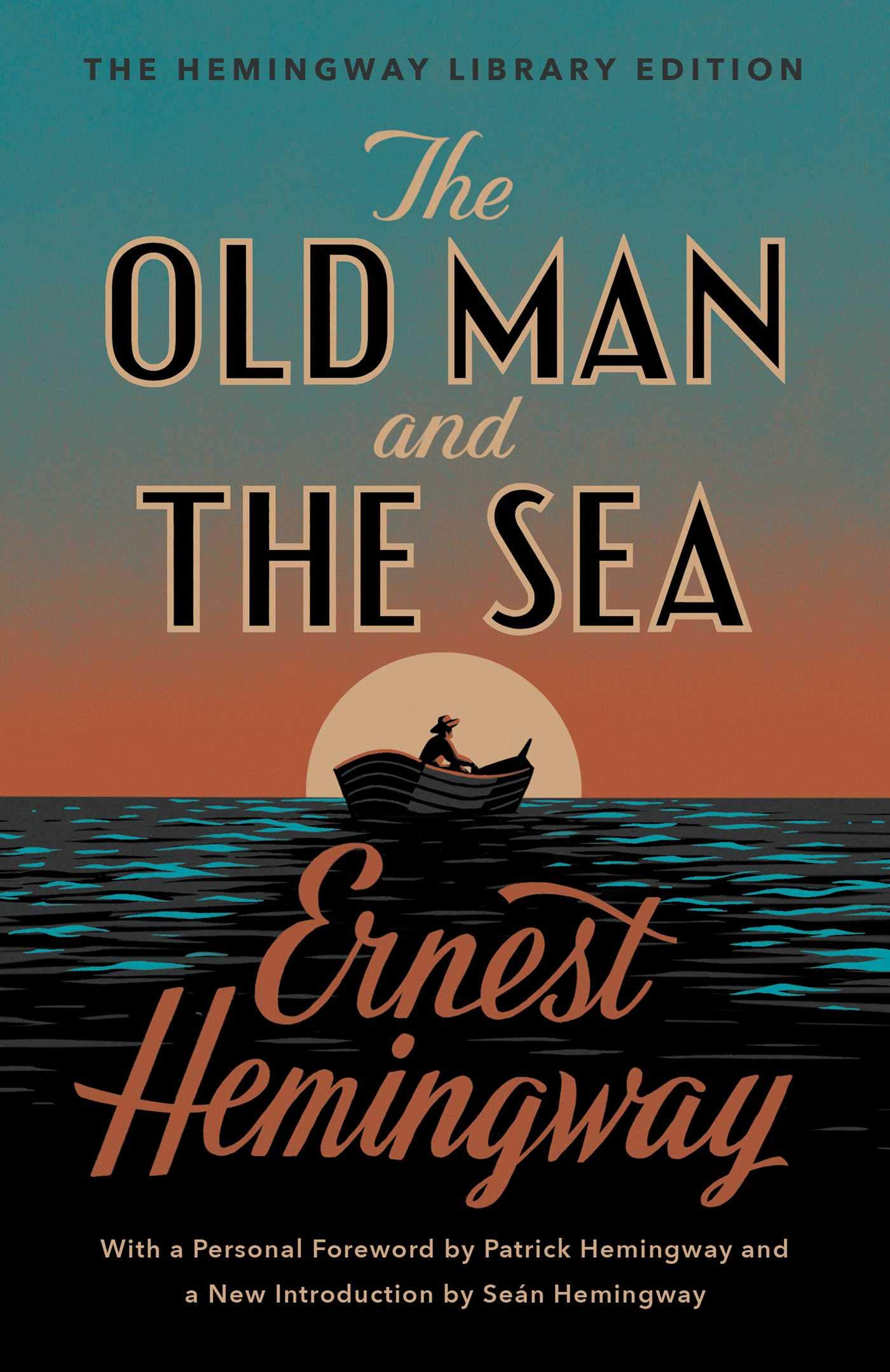 Care for God’s Creation
Care for God’s Creation
The Old Man and the Sea is an example of how all life is interconnected. To use resources without respect cheapens the value. To recognize the power, grace, and dignity of all creatures allows us to be true stewards of the earth. We must appreciate and use our resources responsibly and honorably.
Top Ten Reasons to Study Shakespeare in 2020

UNIVERSAL THEMES His plays introduce issues of love, anger, contempt, fear, courage, innocence, vulnerability, honor, and so much more.
THE BIG QUESTIONS All humans face questions of morality, wealth, life and death, love, and friendship.
THE ACTOR IS THE WRITER He wrote plays from the perspective of a professional actor and acting company making them extraordinarily rewarding to both read in a classroom setting and act on a stage.
THE WORDS HAVE RHYTHM While his language can be difficult to decipher, it is unique and eloquent with meter and a lyric quality.
WORD INVENTION He invented hundreds of words, like swagger, bandit, and dauntless, influencing our language today.
CRITICAL THINKING Shakespeare’s wording and language can be analyzed and the meaning can be taken in so many different ways depending on the reader and the emphasis.
DISCOVERY At each reading, one can find something different in his plays and poems.
ACCOMPLISHMENT The feeling that students have when they master a Shakespearean play is unique. Students at any level realize the true potential they have for literature when they invest in reading Shakespeare.
A FIRST LOOK AT THEATER His plays are often the first experience students have with theater in the classroom, and it inspires students to be actors and performers.
INSPIRATION THROUGH THE AGES Film writers constantly look to Shakespeare’s plots and characters for inspiration-- The Forbidden Planet, Lion King, 10 Things I Hate About You, Kiss Me Kate, O, and West Side Story just to name a few.
Eight books we love to teach
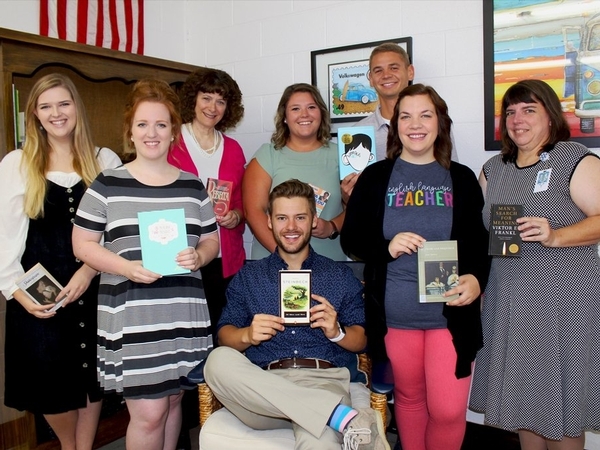
Carroll English Department with their favorite novels
Ann (Calderone) Bertke ‘88
I’m starting my 28th year as a teacher at Carroll (the first 20 in the math department). Currently, I am the English Department Chair and testing coordinator, and I teach English IV, Theater Arts, and Public Speaking. One of my favorite quotes is from Man’s Search for Meaning: “He who has a why to live for can bear almost any how.”
Mary Kate Caserta
I teach Introduction to Literature and English II. My favorite author to teach is Shakespeare because as soon as I say his name, the students groan, but reinventing Shakespeare for freshmen and sophomores and discussing the themes that apply to their own lives is always rewarding. My students laugh when Capulet calls Tybalt a “saucy boy” in Romeo and Juliet.
Lindsay Herrmann
I teach Honors English I and II. Teaching writing, especially in ways that are creative, and having students rediscover reading and writing for pleasure are two of my favorite things. A quote from my favorite book, Pride and Prejudice, is “I cannot fix on the hour, or the spot, or the look or the words, which laid the foundation. It is too long ago. I was in the middle before I knew that I had begun.”
Marcy (Hemmert) Hughes ‘83
I teach Honors Composition and Literature College Credit Plus and Theatre Arts I and II . Many students do not know the impact their words can have on others. Students find their voices enriched by the literature we breathe at Carroll. We connect with written memories. Daphne du Mauier writes in Rebecca, “If only there could be an invention that bottled up a memory, like scent. And it never faded, and it never got stale. And then, when one wanted it, the bottle could be uncorked, and it would be like living the moment all over again.” With these words, we connect.
Ben Joplin
I teach Reading Lab, Experiences in Literature, English III, and Public Speaking. I absolutely love Of Mice and Men by John Steinbeck. Our students are fortunate enough to have an entire English Department that cares deeply about not only their academic successes but their development as bright and caring individuals. Steinbeck writes "I have come to believe that a great teacher is a great artist and that there are as few as there are any other great artists. Teaching might even be the greatest of the arts since the medium is the human mind and spirit."
Claire O’Malley
I teach AP Literature, AP Language, and English Honors III. I teach Pride and Prejudice in my AP Literature class, and it is such a wonderful experience to be able to share the beauty of that novel with my students. The thing I love most about Austen is that she makes you laugh and causes your heart to beat a little faster at any mention of Mr. Darcy, but her novels are much more philosophically and historically thought-provoking if you give it time and really pay attention.”
Molly Stanifer
I teach Classic Literature and Writing and co-teach English I. One of my favorite authors and poets to discuss is Maya Angelou. Her ideas of self-love and respecting others is a universal voice that our students echo. A favorite Angelou quote is, ”‘I've learned that people will forget what you said, people will forget what you did, but people will never forget how you made them feel.”
Ben Swick
I am an Intervention Specialist and co-teach English I. My favorite book is Wonder by R.J. Palacio. Wonder teaches valuable lessons about friendship, courage, character, and kindness. It is through this book where I learned that differences among people should be celebrated and looked at in a positive light. My favorite quote from the book is, “When given the choice between being right and being kind, choose kind.”



Cheryl